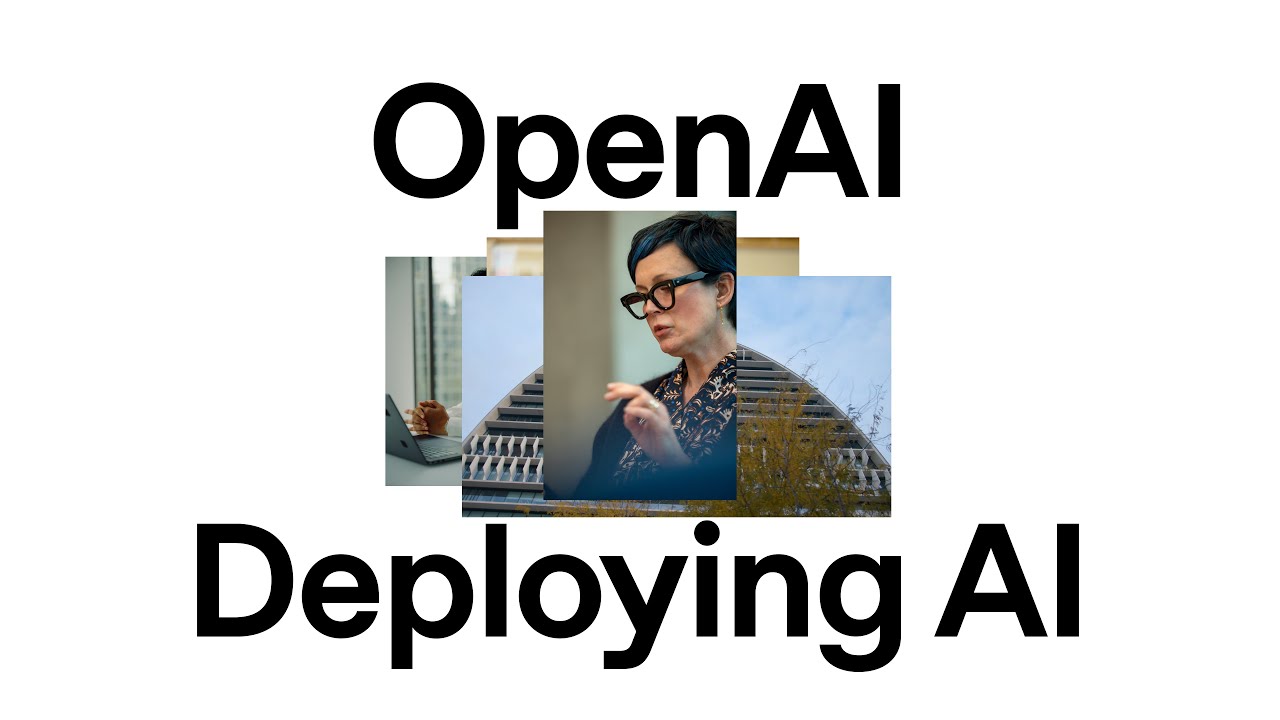
The co-creation of the future through artificial intelligence is no longer a distant concept but a present reality for businesses worldwide. As organizations seek to maintain competitive edges in rapidly evolving markets, OpenAI has emerged as a transformative force that's reshaping how enterprises operate, innovate, and scale. This article explores how companies are implementing OpenAI solutions and the remarkable business outcomes they're achieving.
The Democratization of AI in Enterprise Environments
One of the most striking aspects of OpenAI's impact on business is how it democratizes access to advanced AI capabilities. Organizations implementing OpenAI solutions report that employees across departments can now create custom GPTs tailored to specific business needs without extensive technical expertise. This bottom-up innovation model is producing remarkable results, with some companies developing hundreds of custom applications within just months of deployment.
The statistics speak volumes about the rapid adoption: organizations are seeing 94% of users reporting increased AI fluency, with some achieving an unprecedented 100% adoption rate. One company developed over 400 custom GPTs within just two months of implementation—numbers that reflect both the accessibility and perceived value of these tools.

7 Innovative OpenAI Business Ideas Driving Enterprise Transformation
Forward-thinking organizations are leveraging OpenAI in diverse ways that extend far beyond simple automation. Here are seven powerful OpenAI business ideas that are creating measurable impact:
- Cross-departmental collaboration platforms powered by custom GPTs that enable unprecedented knowledge sharing
- Research acceleration tools that can build agendas, design curricula, and synthesize information at scale
- Data analysis assistants that help analysts identify patterns and insights more efficiently
- Healthcare optimization systems that maximize patient impact through AI-augmented decision making
- Custom GPT development for specific business functions, created by the teams who will use them
- Enterprise-wide AI literacy programs that rapidly upskill entire workforces
- Innovation incubators where employees can experiment with OpenAI's capabilities to discover new business models
From Implementation to Innovation: Creating an OpenAI Business Plan
Organizations successfully leveraging OpenAI typically begin with a structured yet flexible business plan. The approach focuses less on controlling AI implementation from the top down and more on creating environments where innovation can flourish organically. This represents a significant shift from traditional technology deployment strategies.
The most effective OpenAI business plans include provisions for:
- Democratized access to AI tools across the organization
- Resources for departments to develop their own custom solutions
- Frameworks for sharing successful implementations
- Metrics for measuring impact beyond simple productivity gains
- Continuous learning mechanisms to keep pace with evolving capabilities
Beyond Efficiency: Aiming for Superhuman Experiences
The most visionary leaders implementing OpenAI solutions aren't simply looking to recreate existing human workflows with greater efficiency. Instead, they're aiming for what one executive described as "superhuman experiences"—entirely new ways of working that weren't possible before these technologies existed.

This perspective shifts the conversation from AI as a cost-cutting measure to AI as a business transformation catalyst. Organizations building their OpenAI business models around this principle are discovering entirely new revenue streams and competitive advantages rather than simply optimizing existing processes.
The Startup Advantage: How New Ventures Leverage OpenAI
While established enterprises are seeing remarkable results from OpenAI implementation, startups have unique advantages in this space. New ventures can build their entire business models around OpenAI capabilities from day one, without the legacy systems and processes that can slow adoption in larger organizations.
For OpenAI startups, the opportunities include:
- Creating industry-specific applications using OpenAI's APIs
- Developing proprietary datasets that enhance OpenAI's general capabilities
- Building middleware that connects OpenAI to existing enterprise systems
- Offering implementation and training services to larger organizations
- Creating entirely new business categories enabled by AI capabilities
Developing Your Own Model: Custom GPTs vs. OpenAI's Core Offerings
A key decision for organizations implementing OpenAI is whether to use the platform's core offerings or develop custom GPTs tailored to specific business needs. The transcript reveals that many successful implementations involve both approaches, with custom GPTs serving specialized functions while core offerings handle more general tasks.
The ability to develop an OpenAI own model through customization represents a significant competitive advantage. These custom applications encode organizational knowledge and workflows in ways that competitors can't easily replicate, even if they're using the same underlying technology.

Measuring Success: Beyond Productivity Metrics
Organizations implementing OpenAI are developing new frameworks for measuring success that go beyond traditional productivity metrics. While efficiency gains are important, the most forward-thinking companies are also tracking:
- AI fluency across the organization
- Number of custom GPTs developed
- Cross-departmental collaboration facilitated by AI
- Novel solutions and business models emerging from AI use
- Employee satisfaction and engagement with AI tools
These metrics reflect a deeper understanding that the true value of OpenAI in business contexts isn't just doing the same things faster, but enabling entirely new capabilities and ways of working.
The Future of OpenAI in Business: Co-Creating What's Next
Perhaps the most exciting aspect of OpenAI's business impact is the collaborative nature of its development. Organizations aren't simply implementing static tools; they're actively co-creating the future of the technology through their implementations, feedback, and innovations.
This co-creation model means that the potential OpenAI business ideas are virtually limitless. As more organizations implement these tools and discover new applications, the capabilities will continue to expand in ways that even the technology's creators might not have anticipated.
For business leaders looking to leverage OpenAI, the message is clear: this isn't simply another technology implementation but an opportunity to fundamentally rethink how work gets done and what's possible within your organization. The most successful implementations will be those that embrace this transformative potential rather than simply seeking incremental improvements to existing processes.
Conclusion: The Democratized Future of AI in Business
The implementation of OpenAI across diverse business environments reveals a consistent pattern: when powerful AI capabilities are democratized throughout an organization, innovation flourishes in unexpected ways. From healthcare to financial services, organizations are discovering that their most valuable AI implementations often come not from top-down directives but from empowered employees with domain expertise and access to powerful tools.
As one executive noted, "When you give this technology and you democratize access to it in an organization with smart people, they're going to come up with things that I don't even know what they look like. They're going to build something that's going to change our business model." This perspective captures the essence of OpenAI's business impact—not just as a productivity tool, but as a catalyst for reimagining what's possible.
Let's Watch!
7 Game-Changing OpenAI Business Ideas Transforming Enterprise Operations
Ready to enhance your neural network?
Access our quantum knowledge cores and upgrade your programming abilities.
Initialize Training Sequence